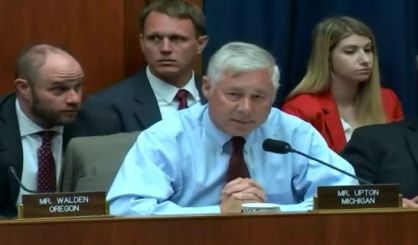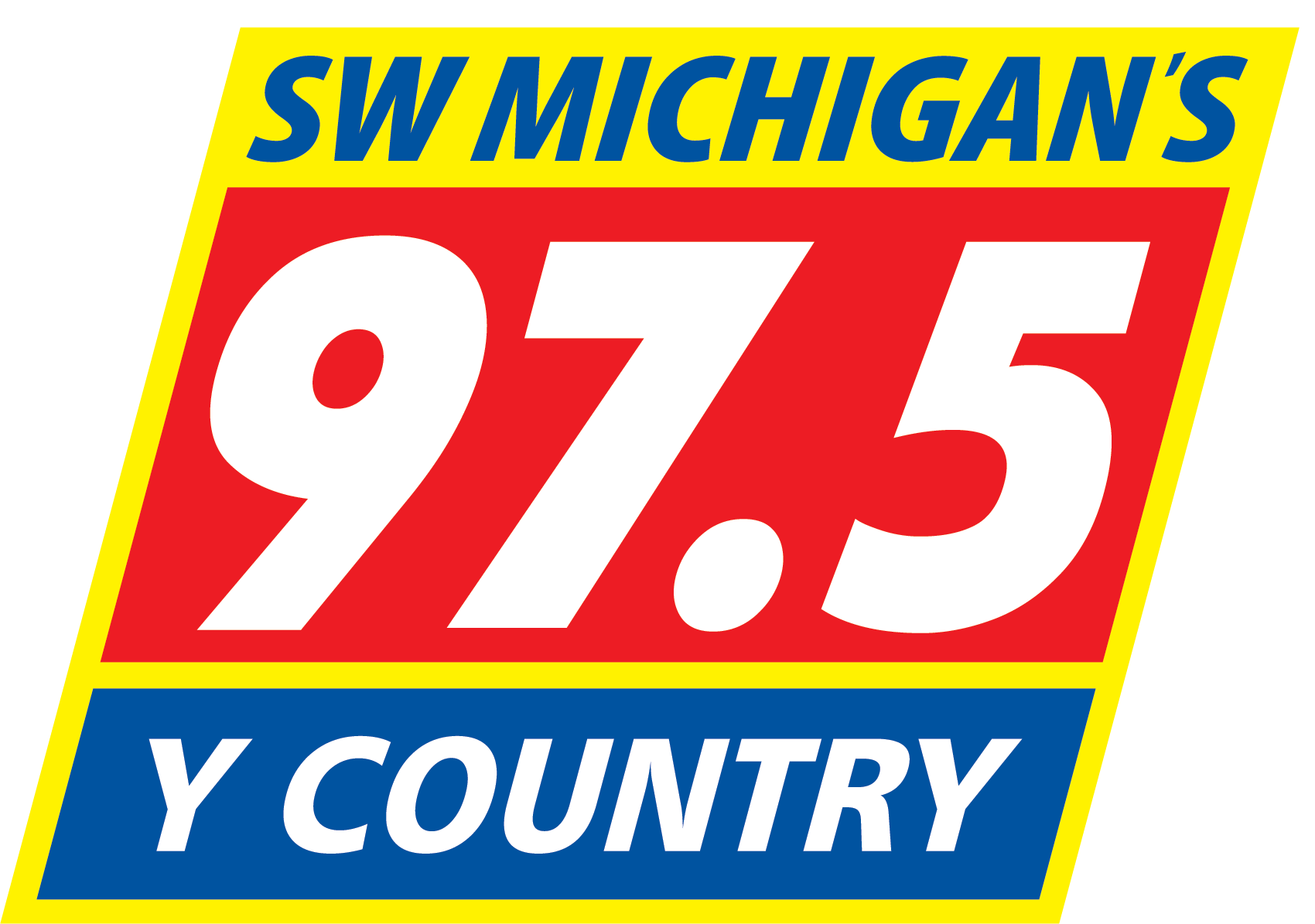
Congressman Fred Upton is hailing House passage of a COVID-19 relief package. It was approved Monday night. Upton’s office has released the following:
U.S. Rep. Fred Upton, R-St. Joseph, today voted for and the U.S. House passed bipartisan legislation aimed at delivering COVID-19 relief to millions of Americans in need.
Upton and the House Problem Solvers Caucus – which Upton serves as a vice-chair of – worked with a bipartisan group of Senators to design this bipartisan, bicameral package that is expected to also pass the U.S. Senate and be signed by President Donald Trump. The package was split into two votes and both were passed by the House with overwhelming bipartisan majorities.
“COVID-19 has caused suffering in this country like we haven’t seen before. Families, small businesses, health care workers, schools – they’re all struggling, and this bipartisan package throws them a lifeline. Help is on the way this Christmas,” Upton said. “I’ve heard from countless doctors and nurses, mom-and-pop small businesses owners, teachers, and community leaders who begged Congress to stop acting like the Grinch and provide much-needed help. This package isn’t perfect but it’s a good compromise and delivers real help. With the new vaccine, there is light at the end of an extremely long tunnel, but to ensure folks can make it until then, we need this package. Bottom line? I joined our bipartisan Problem Solvers Caucus’ call that we could not leave D.C. for home without seeing an agreement enacted to help folks across the country – and that’s what this deal does.”
The $908 billion package provides additional resources for the Paycheck Protection Program, emergency food assistance, emergency rental assistance, health care workers and hospitals, testing, tracing, vaccine development and distribution, schools, and broadband. The legislation also extends unemployment assistance for 16 weeks and provides for direct stimulus payments.
Below is a more detailed breakdown of the funding allocation in the Bipartisan Emergency COVID Relief Act of 2020:
- Direct stimulus payments of $600 per person
- Extension of all unemployment assistance for 16 weeks, with supplemental $300 per week
- $300B for Small Business Administration
-
- Second Round of PPP for Small Business, inclusion of 501c6, restaurants, and live venues
- Loan forgiveness process is simplified for borrowers with PPP loans of $150,000 or less.
- $13B for emergency food assistance: Increased SNAP assistance and funding for food banks and food pantries
- $13B to provide funding to address COVID-related impacts on farmers, ranchers, growers, and fisheries
- $25B for emergency rental assistance and extension of eviction moratorium through January 31
- Extension of student loan forbearance through April 1, 2021
- $35B for Healthcare Provider Relief Fund
-
- Including $7B for rural providers
- $16B for Testing, Tracing and Vaccine Development & Distribution
- $12B in CDFI / MDI targeted emergency investments to help low-income and minority communities withstand the economic impact of the COVID-19 pandemic and respond to this unprecedented economic downturn
- $5B in emergency funding for substance abuse prevention and treatment and mental health
- $82B of education funding, including $54 billion dedicated to K-12, $20 billion dedicated to higher education, and $7.5 billion for the Governor’s Fund
-
- Includes targeted aid for private and parochial schools, minority-serving institutions, territories, and the Bureau of Indian Education
- $10B to support child care providers struggling due to the COVID 19 pandemic
- $10B for broadband
- $45B in emergency funding for transportation sector
- Eliminates repayment requirement for $10B U.S. Postal Service loan included in CARES Act
The House also voted to pass an omnibus spending bill for fiscal year 2021, which began October 1. A number of Upton’s priorities were included as part of the legislative package, which is also expected to be passed by the U.S. Senate and signed by President Donald Trump.
“This arduous process resulted in a bipartisan agreement that includes support for our health care workers, veterans, the environment, seniors, taxpayers, and the economy,” Upton said. “Looking ahead to the beginning of the 117th Congress, I remain committed to working with my colleagues on both sides of the aisle to deliver results for southwest Michigan families.”
Below is a detailed breakdown of highlights of the budget agreement for southwest Michigan:
- $330M for the Great Lakes Restoration Initiative, which addresses a wide range of problems including invasive species, non-point source pollution, and contaminated sediment.
- A $10M increase and a total of $435M for the Agriculture and Food Research Initiative within the National Institute of Food and Agriculture.
- Fully funds veterans’ health care, including the MISSION Act’s community care program and other critical programs.
- $43B for the National Institutes of Health, an increase of $1.25 billion above the enacted FY20 level. This funding include $3B for Alzheimer’s disease and more than $6B for cancer research.
- $732M for rural broadband, the highest level in history, including $635M for the ReConnect broadband pilot for unserved and underserved areas as well as $60M for Distance Learning and Telemedicine grants.
- $1.7B for Community Health Centers
Among priorities Upton fought to include as part of this legislative package include:
Improving Pipeline Safety
Upton supported and the House passed the bipartisan PIPES Act, reauthorizing the pipeline safety agency.
In the last pipeline safety reauthorization in 2016, Upton successfully included mandatory annual inspections for certain pipeline crossings, such as Enbridge’s Line 5, which crosses the Straits of Mackinac at a depth of more than 250 feet below the surface of the water. Under current law, the pipeline operator is also required to conduct underwater visual inspections and other surveys on a risk-based schedule.
In April 2018, an anchor struck Line 5 and caused damage to the external coating of Line 5, but there was no major damage to the pipeline. The incident revealed the need to pipeline operators to update its procedures to prevent anchor strikes and visually inspect the pipeline more frequently.
As part of this legislation package, Upton included an update to the 2016 regulations and now visual surveys and other technology to assess the integrity of the pipeline will be required at least once a year. The new language also requires the pipeline operator to implement special procedures to assess potential impacts by maritime vessels or equipment, including anchors.
“The safe operation of our nation’s pipeline system is vital to our economy, our national security, and our energy security. Now more than ever with the COVID-19 pandemic, Americans depend on pipelines every day to deliver fuels for essential uses, such as electricity generation, heating, and cooking, and the PIPES Act will ensure our pipelines remain safe and secure. We are proud to have worked with our colleagues on a bicameral compromise to reauthorize the PIPES Act and are pleased to push this across the finish line this year,” Upton said.
Reauthorizing School-Based Health Centers
As part of the budget agreement, the House supported Upton’s efforts to reauthorize the School-Based Health Centers program through 2024 and provide SBHCs with the federal support they need to continue delivering valuable, low-cost health care to students across the country. School-based health centers reach more than two million children and adolescents in over 2,000 SBHCs across the nation, including more than 120 in Michigan. SBHCs primarily operate in underserved communities and play a crucial role in the provision of primary care services to school children, which also includes dental screenings and mental health services.
Ending Surprise Medical Billing
Upton supported bicameral, bipartisan efforts to put together an agreement to end surprise medical billing and protect patients from unexpected medical costs – without increasing premiums or interfering with state-level solutions. This plan establishes a fair payment dispute resolution process including:
- Holds patients harmless from surprise medical bills, including from air ambulance providers, by ensuring they are only responsible for their in-network cost-sharing amounts, including deductibles, in both emergency situations and certain non-emergency situations where patients do not have the ability to choose an in-network provider.
- Prohibits certain out-of-network providers from balance billing patients unless the provider gives the patient notice of their network status and an estimate of charges 72 hours prior to receiving out-of-network services and the patient provides consent to receive out-of-network care.
- Creates a framework that takes patients out of the middle, and allows health care providers and insurers to resolve payment disputes without involving the patient.
- Under the agreement, insurers will make a payment to the provider that is determined either through negotiation between the parties or an independent dispute resolution (IDR) process. There is no minimum payment threshold to enter IDR, and claims may be batched together to ease administrative burdens.
- If the parties choose to utilize the IDR process, both parties would each submit an offer to the independent arbiter. When choosing between the two offers the arbiter is required to consider the median in-network rate, information related to the training and experience of the provider, the market share of the parties, previous contracting history between the parties, complexity of the services provided, and any other information submitted by the parties.
- Following an IDR process, the party that initiated the dispute may not take the same party to arbitration for the same item or service for 90-days following a determination by the arbitrator. However, all claims that occur during the 90-day period are eligible for IDR after the 90-days.
- Provides additional consumer protections when insurance companies change networks, including a transition of care for people with complex care needs and appeal rights for consumers.
- Empowers consumers by providing a true and honest cost estimate that describes which providers will deliver their treatment, the cost of services, and provider network status.
As part of the legislative agreement, the package includes a long-term extension of expiring public health programs, including: Community Health Centers, National Health Service Corps, Teaching Health Centers, and Special Diabetes Programs.
Investing in Clean Energy
Upton supported and the House passed a number of clean energy-related bills aimed at reducing carbon emissions. The bipartisan, comprehensive package of programs invests heavily in clean energy R&D and technologies, including energy storage, nuclear power, electric vehicles, and carbon capture.






